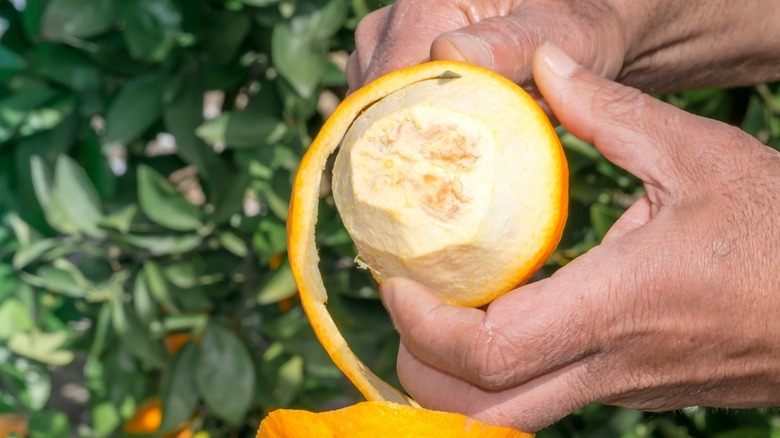If you have a problem with skunks, the issue is no laughing matter, especially since they are the primary carriers of rabies in the Midwestern United States. Luckily, they’re normally quite shy and only come out at night, so most of the time you shouldn’t run across them. Occasionally, however, they might seek out the food in your garden or the grubs in your soil. In this case, did you know you can use citrus peelings to deter them? It’s true, for some reason skunks can’t stand the smell of lemon and orange peels.
There are a couple of telltale signs you might have a skunk hanging around. When they dig for grubs under the dirt, they leave small holes about 3 or 4 inches in diameter that are shaped like a cone. If you grow corn, they will sometimes nibble on the ears closest to the ground, but they won’t knock over corn stalks and cause more damage like raccoons will. However, the one thing that always gives a skunk away is the smell. Even when they’re not spraying their noxious stink, they leave behind a sharp, musky odor that’s unmistakable. If you notice any of these signs in your garden, use citrus peels to deter them.
How to use citrus peels to get rid of skunks

To get rid of skunks using citrus peelings, all you have to do is spread the peels around your garden or wherever you have either seen a skunk or suspect that one has been hanging around. Place them around the borders of your edible garden in particular. Orange and lemon peelings work best, but you could also try using lime or grapefruit rinds as well, since they’re also acidic. The main thing is, they will need to be replaced often to maintain their pungent smell. Also tear the peels into small pieces as you spread them around, as this will release more of the citric acid they hate.
In fact, it’s the acids produced by citrus fruits that emit a scent skunks find offensive to their sensitive noses. Because they can’t see very well, their sense of smell is heightened, and they can smell citrus from a long way off. By using this method, you’re finding a good use for scraps that would otherwise be thrown away. As a bonus, when you go to replace the peelings, you can put the old ones into the compost bin to benefit your garden in another way.

